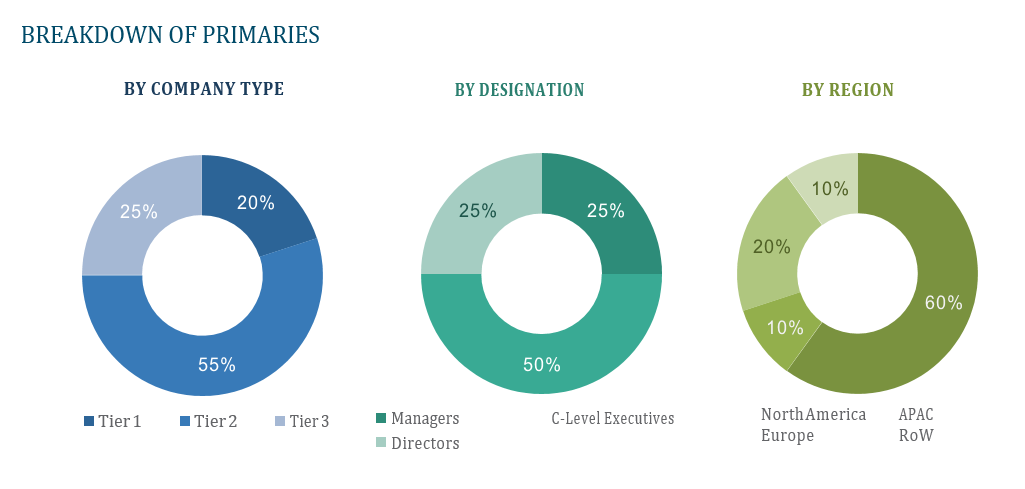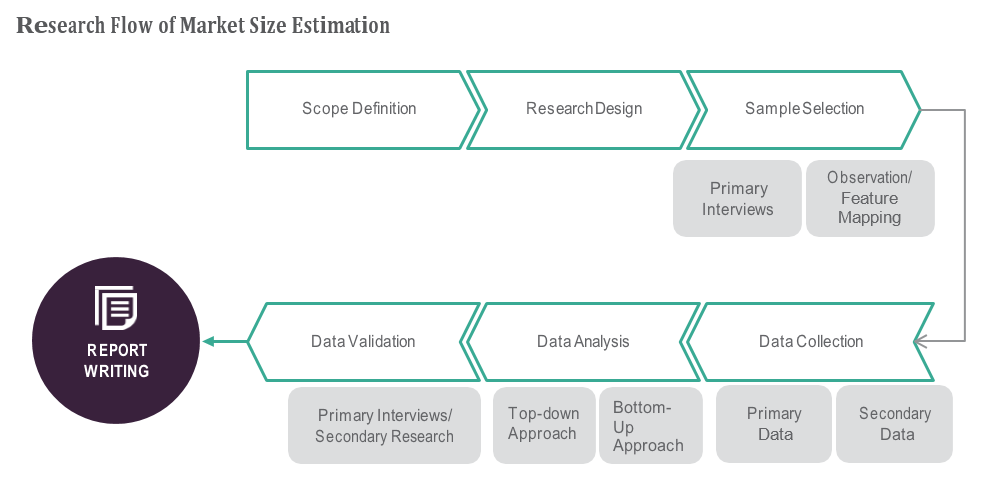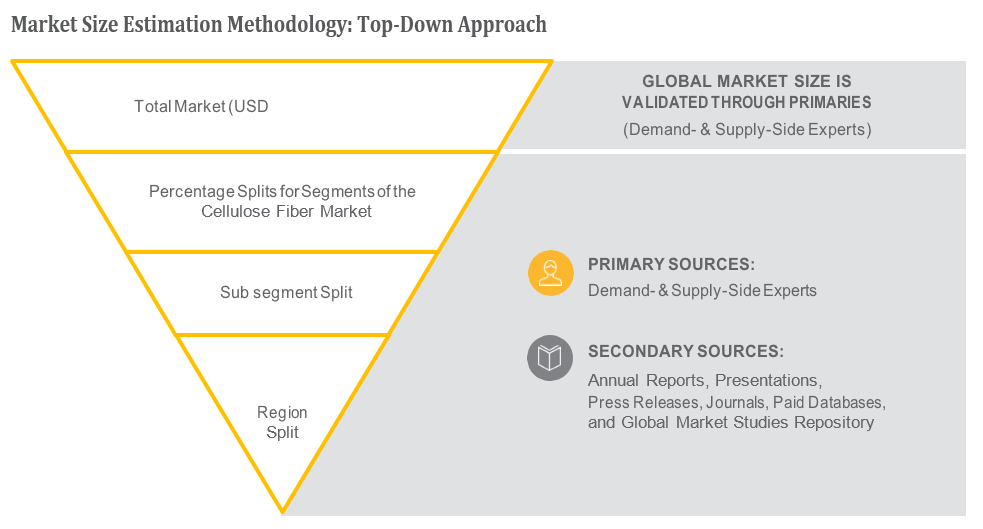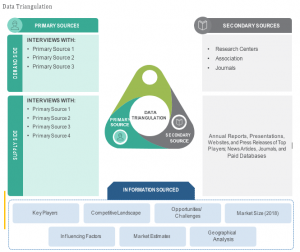OVERVIEW
The Artificial Intelligence (AI) in Healthcare Market is projected to experience substantial growth, with its valuation expected to rise from USD 14.5 billion in 2024 to an estimated USD 45.2 billion by 2029, reflecting a CAGR of 25.8% during the forecast period. AI in healthcare involves the application of machine learning algorithms, natural language processing, and data analytics to enhance medical diagnostics, treatment planning, patient care, and administrative processes.
AI technologies are revolutionizing the healthcare industry by enabling more accurate diagnostics, personalized treatment, and efficient management of healthcare data.
The market’s growth is driven by the increasing adoption of AI technologies in healthcare, advancements in AI algorithms and data analytics, and the rising demand for personalized and efficient healthcare solutions. Additionally, the growing focus on reducing healthcare costs, improving patient outcomes, and addressing the challenges posed by the aging population are further propelling the market forward. However, challenges such as data privacy concerns, high implementation costs, and the need for regulatory compliance need to be addressed to sustain market growth.
Geographically, North America and Europe dominate the AI in healthcare market due to their advanced technological infrastructure, significant investments in R&D, and high adoption rates of AI solutions. The Asia Pacific region is also expected to witness substantial growth, driven by rapid digital transformation, expanding healthcare sectors, and increasing government initiatives to promote AI adoption in healthcare.
Market Dynamics
Drivers:
The primary driver of the AI in healthcare market is the increasing adoption of AI technologies to enhance medical diagnostics and patient care. AI algorithms can analyze vast amounts of medical data, including imaging scans, lab results, and patient records, to identify patterns and detect anomalies that may not be apparent to human clinicians. This capability enables more accurate and early diagnosis of diseases, leading to improved patient outcomes. AI-powered diagnostic tools are particularly beneficial in areas such as radiology, pathology, and oncology, where they can assist in identifying tumors, detecting genetic disorders, and predicting disease progression. The growing need for accurate and timely diagnostics is driving the adoption of AI solutions in healthcare.
Advancements in AI algorithms and data analytics are also fueling the growth of the market. Continuous innovations in machine learning, deep learning, and natural language processing are enhancing the capabilities of AI systems, making them more effective and reliable in healthcare applications. These advancements include the development of AI models that can interpret complex medical data, generate personalized treatment recommendations, and support clinical decision-making. Additionally, the integration of AI with electronic health records (EHRs) and other healthcare IT systems is enabling seamless data exchange and real-time analytics, improving the efficiency and quality of patient care. The ongoing technological advancements in AI are making it more versatile, accurate, and accessible, driving its adoption and market growth.
Key Opportunities :
One of the key opportunities in the M2M connections market lies in the growing trend of smart cities and smart infrastructure. M2M connections are essential components of smart city projects, enabling the integration and management of various urban systems such as traffic management, energy management, waste management, and public safety.
These connections provide real-time data and control capabilities, enhancing the efficiency and sustainability of urban operations. The increasing focus on urbanization, sustainab The primary driver of the M2M connections market is the increasing adoption of IoT technologies across various industries. M2M connections form the backbone of IoT ecosystems, enabling devices to communicate and share data seamlessly. This connectivity is essential for automating processes, improving efficiency, and enabling real-time decision-making.
Industries such as manufacturing, healthcare, transportation, and utilities are leveraging M2M connections to optimize operations, enhance productivity, and deliver innovative services. For example, in manufacturing, M2M connections enable predictive maintenance, remote monitoring, and automated control of production lines. In healthcare, they facilitate remote patient monitoring and telemedicine services. The growing need for interconnected and intelligent systems is driving the demand for M2M connections.
Advancements in wireless communication technologies are also fueling the growth of the market. The deployment of 5G networks is significantly enhancing the capabilities of M2M connections by providing higher data speeds, lower latency, and greater connectivity. 5G technology enables real-time communication and supports a higher density of connected devices, making it ideal for applications requiring high reliability and responsiveness. Additionally, advancements in Low Power Wide Area Networks (LPWAN) and Narrowband IoT (NB-IoT) are expanding the reach of M2M connections by providing long-range connectivity and low power consumption, making them suitable for remote and battery-operated devices. These technological advancements are making M2M connections more versatile, reliable, and scalable, driving their adoption and market growth.
Restraints:
One of the major restraints in the AI in healthcare market is data privacy and security concerns. AI systems rely on large datasets to train algorithms and make predictions, which often include sensitive patient information. Ensuring the privacy and security of this data is critical to gaining patient trust and complying with data protection regulations such as GDPR and HIPAA. The risk of data breaches and unauthorized access to medical data can undermine the adoption of AI solutions in healthcare. Addressing these privacy and security concerns through robust cybersecurity measures, data encryption, and compliance with regulatory standards is essential for the sustained growth of the market.
High implementation costs and the complexity of integrating AI solutions with existing healthcare systems pose additional challenges for the market. Implementing AI technologies requires significant investment in advanced hardware, software, and infrastructure, as well as specialized expertise in data science and machine learning. The upfront costs can be a barrier to adoption, particularly for small and medium-sized healthcare providers with limited budgets. Additionally, integrating AI solutions with existing EHRs and other healthcare IT systems can be complex and time-consuming, requiring careful planning and customization. Overcoming these cost and integration challenges through scalable and cost-effective solutions, comprehensive training programs, and robust support services is essential for the sustained growth of the market. Ensuring that healthcare organizations can effectively adopt and benefit from AI technologies is critical to overcoming these challenges and driving market adoption.
Regional Information:
• Asia Pacific
The Asia Pacific region is expected to witness the highest growth rate in the AI in healthcare market due to rapid digital transformation, expanding healthcare sectors, and increasing government initiatives to promote AI adoption. Countries like China, Japan, and India are investing heavily in AI research and healthcare infrastructure, driving the demand for advanced AI solutions. The region’s growing population and rising healthcare needs are contributing to the increased adoption of AI technologies in medical diagnostics, treatment planning, and healthcare administration. Additionally, the presence of major technology companies and the availability of affordable AI solutions are enhancing the market’s potential. Governments in the region are also implementing policies and providing incentives to promote the use of AI in healthcare, creating a favorable environment for market growth.
• North America
North America remains a significant market for AI in healthcare, characterized by advanced technological infrastructure, high adoption rates, and substantial investments in R&D. The United States is the leading market, driven by the widespread use of AI solutions in healthcare organizations, academic institutions, and research centers. The presence of major technology companies and strong governmental support for AI innovation further supports market growth. Additionally, the increasing focus on enhancing patient outcomes, reducing healthcare costs, and addressing the challenges posed by the aging population is promoting the adoption of AI technologies. However, high implementation costs and the need for continuous innovation to address evolving healthcare needs require strategic planning and investment.
• Europe
Europe is at the forefront of adopting AI technologies in healthcare, driven by stringent regulatory frameworks, significant investments in digital health, and a strong focus on innovation. Countries such as Germany, the United Kingdom, and France are leading markets, supported by advanced healthcare systems and well-established research capabilities. The European Union’s initiatives to promote AI adoption, data privacy, and digital transformation are further fueling the demand for AI solutions in healthcare. The region’s commitment to improving healthcare quality, reducing costs, and enhancing patient outcomes is also driving the adoption of AI technologies for personalized medicine and efficient healthcare management. However, economic uncertainties and regulatory challenges necessitate strategic planning and risk management to navigate the market landscape effectively.
Recent Developments:
In August 2023, Hewlett Packard Enterprise (US) collaborated with Cyxtera (US) to offer Asset Upcycling Services, allowing organizations to recover value securely and sustainably from retired hardware. As part of this collaboration, HPE facilitates the purchase of old hardware when customers deploy new, more efficient infrastructure with Cyxtera.
In March 2023, Redington Limited (India) partnered with Dell Inc. (US) to promote sustainability initiatives in India. Through this partnership, Redington would offer Dell’s Asset Resale and Recycling Services (ARRS) to help businesses securely and sustainably manage legacy IT equipment, reducing environmental impact.
Key market Players:
IBM Watson Health, Google Health, Microsoft Azure, GE Healthcare, and Philips Healthcare.
Frequently Asked Questions
1) What is the projected market value of the Artificial Intelligence (AI) in Healthcare Market?
– The Artificial Intelligence (AI) in Healthcare Market is expected to reach an estimated value of USD 45.2 billion in revenue by 2029.
2) What is the estimated CAGR of the Artificial Intelligence (AI) in Healthcare Market over the 2024 to 2029 forecast period?
– The CAGR is estimated to be 25.8% for the Artificial Intelligence (AI) in Healthcare Market over the 2024 to 2029.
3) Who are the key players in the Artificial Intelligence (AI) in Healthcare Market?
– IBM Watson Health, Google Health, Microsoft Azure, GE Healthcare, and Philips Healthcare.
4) What are the drivers for the Artificial Intelligence (AI) in Healthcare Market?
– The primary drivers for the Artificial Intelligence (AI) in Healthcare Market include the increasing adoption of AI technologies in healthcare, advancements in AI algorithms and data analytics, and the rising demand for personalized and efficient healthcare solutions. These factors are contributing to the widespread adoption of AI solutions, as they offer significant benefits in terms of diagnostic accuracy, patient outcomes, and healthcare efficiency.
5) What are the restraints and challenges in the Artificial Intelligence (AI) in Healthcare Market?
– Data privacy and security concerns and high implementation costs are significant challenges for the Artificial Intelligence (AI) in Healthcare Market. Addressing these issues through robust cybersecurity measures, data encryption, scalable and cost-effective solutions, comprehensive training programs, and robust support services is crucial for the sustained growth of the market. Ensuring that healthcare organizations can effectively adopt and benefit from AI technologies is essential to overcoming these challenges and driving market adoption.
6) What are the key applications and offerings of the Artificial Intelligence (AI) in Healthcare Market?
– AI in healthcare is essential in medical diagnostics for analyzing medical images, lab results, and patient records to detect diseases early and accurately, improving patient outcomes. It is widely used in treatment planning to generate personalized treatment recommendations based on patient data, enhancing the effectiveness and efficiency of medical interventions. In healthcare administration, AI technologies streamline administrative processes, automate billing and coding, and provide predictive analytics for resource allocation, reducing operational costs and improving efficiency. Additionally, AI-driven telemedicine solutions enable remote patient monitoring and virtual consultations, enhancing access to healthcare services and improving patient care.
7) Which region is expected to drive the market for the forecast period?
– Asis pacific is expected to have the highest market growth from 2024 to 2029
Why Choose Us?
Insights into Market Trends: Global Market Studies reports provide valuable insights into market trends, including market size, segmentation, growth drivers, and market dynamics. This information helps clients make strategic decisions, such as product development, market positioning, and marketing strategies.
Competitor Analysis: Our reports provide detailed information about competitors, including their market share, product offerings, pricing, and competitive strategies. This data can be used to inform competitive strategies and to identify opportunities for growth and expansion.
Industry Forecasts: Our reports provide industry forecasts, which will inform your business strategies, such as investment decisions, production planning, and workforce planning. These forecasts can help you to prepare for future trends and to take advantage of growth opportunities.
Access to Industry Experts: Our solutions include contributions from industry experts, including analysts, consultants, and subject matter experts. This access to expert insights can be valuable for you to understand the market.
Time and Cost Savings: Our team at Global Market Studies can save you time and reduce the cost of conducting market research by providing comprehensive and up-to-date information in a single report, avoiding the need for additional market research efforts.









